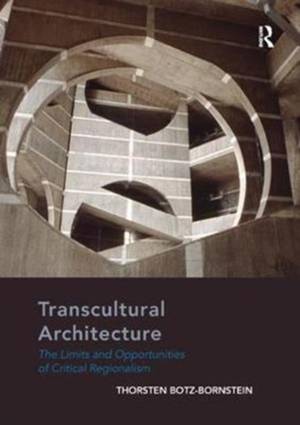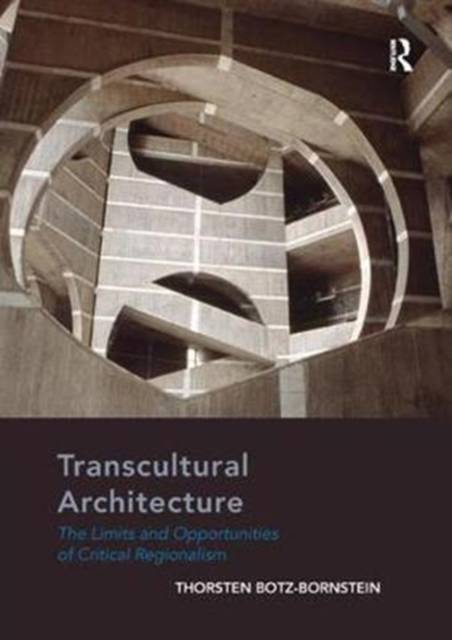
- Afhalen na 1 uur in een winkel met voorraad
- Gratis thuislevering in België vanaf € 30
- Ruim aanbod met 7 miljoen producten
- Afhalen na 1 uur in een winkel met voorraad
- Gratis thuislevering in België vanaf € 30
- Ruim aanbod met 7 miljoen producten
Zoeken
Transcultural Architecture
The Limits and Opportunities of Critical Regionalism
Thorsten Botz-Bornstein
Paperback | Engels
€ 62,45
+ 124 punten
Uitvoering
Omschrijving
Critical Regionalism is a notion which gained popularity in architectural debate as a synthesis of universal, 'modern' elements and individualistic elements derived from local cultures. This book shifts the focus from Critical Regionalism towards a broader concept of 'Transcultural Architecture' and defines Critical Regionalism as a subgroup of the latter. One of the benefits that this change of perspective brings about is that a large part of the political agenda of Critical Regionalism, which consists of resisting attitudes forged by typically Western experiences, is 'softened' and negotiated according to premises provided by local circumstances. A further benefit is that several responses dependent on factors that initial definitions of Critical Regionalism never took into account can now be considered. At the book's centre is an analysis of Reima and Raili Pietilä's Sief Palace Area project in Kuwait. Further cases of modern architecture in China, Korea, and Saudi Arabia show that the critique, which holds that Critical Regionalism is a typical 'western' exercise, is not sound in all circumstances. The book argues that there are different Critical Regionalisms and not all of them impose Western paradigms on non-Western cultures. Non-Western regionalists can also successfully participate in the Western enlightened discourse, even when they do not directly and consciously act against Western models. Furthermore, the book proposes that a certain 'architectural rationality' can be contained in architecture itself - not imposed by outside parameters like aesthetics, comfort, or even tradition, but flowing out of a social game of which architecture is a part. The key concept is that of the 'form of life', as developed by Ludwig Wittgenstein, whose thoughts are here linked to Critical Regionalism. Kenneth Frampton argues that Critical Regionalism offers something well beyond comfort and accommodation. What he has in mind are ethical prescripts closely linked to a
Specificaties
Betrokkenen
- Auteur(s):
- Uitgeverij:
Inhoud
- Aantal bladzijden:
- 224
- Taal:
- Engels
Eigenschappen
- Productcode (EAN):
- 9781138573468
- Verschijningsdatum:
- 12/10/2017
- Uitvoering:
- Paperback
- Formaat:
- Trade paperback (VS)
- Afmetingen:
- 175 mm x 246 mm
- Gewicht:
- 452 g

Alleen bij Standaard Boekhandel
+ 124 punten op je klantenkaart van Standaard Boekhandel
Beoordelingen
We publiceren alleen reviews die voldoen aan de voorwaarden voor reviews. Bekijk onze voorwaarden voor reviews.











